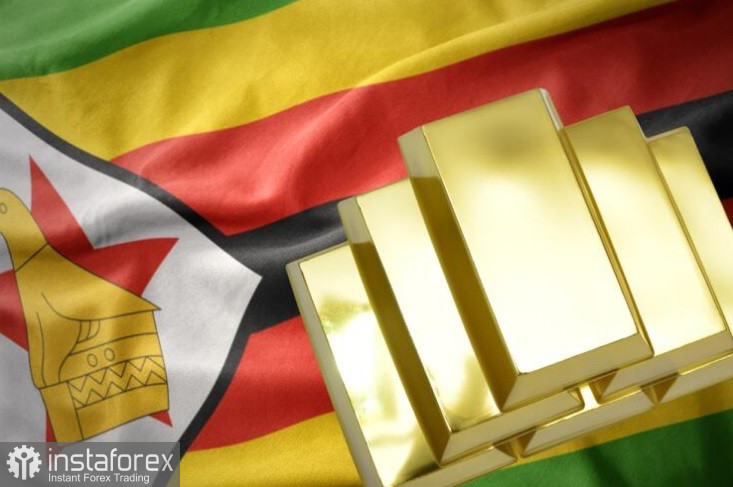
Zimbabwe, which tried to curb inflation by selling gold coins, is now taking another step forward. The republic wants to encourage the country's largest gold miners to produce more than the targets set by the state.
Back in July, Zimbabwe's central bank began selling gold coins to bring inflation under control, providing a store of value for the declining national currency and an alternative to the US dollar for the public.
A week after the launch of gold coins, the country saw strong demand, with the country's central bank selling 1,500 gold coins and planning to issue 2,000 more.
The government is currently encouraging major mining companies to produce more gold. And those who exceed their targets can receive 80% of the payment for additional production in foreign currency, Bloomberg quotes Deputy Mines Minister Polite Kambamura. The current payment plan is a 60-40 split between foreign and local currency payments.
The country's gold miners see a large share of foreign exchange earnings as an advantage to cover their operating costs. Gold exports are today the third largest source of foreign exchange, followed by platinum and remittances.
To help the mining industry, the government of Zimbabwe has selected two local lenders to provide $1 billion in financing over the next five years.
Some miners are already planning to increase their production, including the state-owned Kuvimba Mining House Ltd., which plans to increase output fivefold at its Shamva gold mine by 2023.
According to Kambamura, Zimbabwe's gold production is already up 47% this year, and the government expects gold production to account for a third of the mining industry's $12 billion in 2023 revenue.
The gold coins that are minted and sold by the central bank are one troy ounce 22-carat gold coins. The price is set based on the international price of gold and production costs. Owners of gold coins can convert them into cash or exchange them if necessary.
The government's plan is to use these coins to reduce demand for US dollars after the collapse of the Zimbabwean dollar. Rising inflation and currency devaluation have made life difficult for the people of Zimbabwe. Annual inflation in the country rose to 256.9% in July from 191.6% in the previous month.
In response to the crisis, Zimbabwe's central bank was forced to more than double its key rate from 80% to 200%, which was a new record.
The Zimbabwean government also announced plans to adopt the US dollar as legal tender for the next five years to stabilize the country's exchange rate. But there is an acute shortage of dollars. It is worth noting that this is the second time in more than a decade that Zimbabwe has made the US dollar legal tender.
 English
English 
 Русский
Русский Bahasa Indonesia
Bahasa Indonesia Bahasa Malay
Bahasa Malay ไทย
ไทย Español
Español Deutsch
Deutsch Български
Български Français
Français Tiếng Việt
Tiếng Việt 中文
中文 বাংলা
বাংলা हिन्दी
हिन्दी Čeština
Čeština Українська
Українська Română
Română

